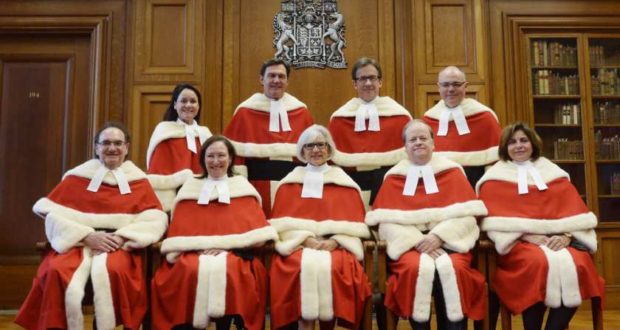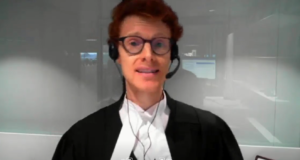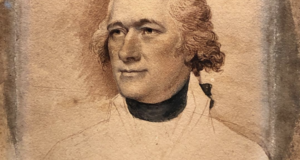This is the secondof two articles Mr. Sirota has written in response to Asher Honickman’s essay entitled “The Case for a Constrained Approach to Section 7.” Mr. Honickman’s reply to follow.
This article was originally published at Double Aspect, Mr. Sirota’s award winning blog.
As I mentioned in my previous post, I would like to respond to a number of points that Asher Honickman makes in a very interesting ― albeit, in my view, misguided ― essay written for CBA Alberta’s Law Matters. In the last post, I responded to Mr. Honickman’s critique of the Supreme Court’s jurisprudence relating to section 7 of the Charter. Here, I want to consider his approach to the role of courts more generally. Mr. Honickman, as I previously explained,
tries to chart a middle course between what he describes as “judicial supremacy” and “legislative supremacy” ― the views that, respectively, “when it comes to interpreting the Charter … more is better” and judges should expand the scope of its provisions accordingly, and that the Charter as a whole was a mistake.
I have considerable sympathy for the attempt, but I am not sure that it is successful. At a very general level, I have no quarrel at all with waht Mr. Honickman describes as “the common-sense proposition that the Constitution should be interpreted based on what it actually says, not what some might wish it would say.” The devil, as usual, is in the details.
One issue Mr. Honickman raises is the relaxation of the stare decisis principle in constitutional cases, whereby the Supreme Court is willing, as it explained in Canada (Attorney General) v. Bedford, 2013 SCC 72, [2013] 3 S.C.R. 1101, not only to reconsider its own precedents, but also to allow lower courts to do so in response to changes in the legal background or the “social, political and economic assumptions underlying” these precedents. This is indeed a valid concern. As Lon Fuller and other Rule of Law theorists point out, the law must be stable, because if it changes too easily or too often, people will understandably no longer pay much heed to it, and it will cease playing its role of guiding action. Yet against that, we must also consider the possibility that legal rules will cease commanding respect if they are understood to be based on legal, moral, or empirical foundations weak from the moment they were laid, or eroded over time. I am not quite sure what the right solution to this conundrum is. I am a bit skeptical, for instance, of the Supreme Court’s choice to allow lower courts to actually depart from its precedents, as opposed to merely suggesting that it do so on appeal. But there is certainly more to be said for allowing departures from stare decisis than Mr. Honickman allows.
Mr. Honickman is also concerned that judges venturing into the realm of moral issues and “social policy” will, on the one hand, make them appear to be political actors and lead to a politicization of judicial appointments, and on the other, deter legislators “from tackling politically sensitive issues, preferring instead to punt them to the unelected and unaccountable judiciary.” The flippant answer to this is that this particular ship has sailed a long time ago. The less flippant one is that law generally, and constitutional law in particular, contains an ineradicable moral and ideological element, so that there is nothing wrong with perceiving judges as being ― in part ― moral agents and political actors. Mr. Honickman wishes to remove morality, policy, and politics from section 7 jurisprudence, but even if he were successful in that, I doubt that he could eliminate them from, say, decisions about state neutrality and accommodation of religion under section 2(a) of the Charter, or reasonableness of police searches under section 8, or equality under section 15. For better and for worse, the Charter‘s text itself makes it inevitable that that judges will be making decisions touching on morality and politics.
Besides, as I have argued here, we know that even when it comes to non-justiciable rules, politicians can fail to take the constitution into account at all. Judicial circumspection in the interpretation of justiciable constitutional provisions would not help politicians grow a backbone and take constitutional rights and principles seriously. Mr. Honickman is right that legislatures have more resources to deal with issues of policy, and are more representative of the popular opinion on matters of morality, than the courts. Yet all too often they fail to make use of this advantage. What I have referred to here as “democratic process failures” ― cases of “persistent inability of that process to produce laws that majorities would agree with and find desirable” ― occur with some regularity in democratic polities, while political ignorance, which can result in elected officials ignoring issues altogether or addressing them in ways that serve their own interests rather than the electorate’s is pervasive. Arguments to the effect that courts should act this way or that because, if they do so, politicians will behave better reflect hope rather than experience.
None of this amounts to a suggestion that judges should approach constitutional cases in any particular way. As I say above, I share Mr. Honickman’s concerns about judicial subjectivity and about an inflationary interpretation of constitutional texts that divorces constitutional law from the rules that actually were enacted through the democratic process. Judges are not angels. They are human beings, exercising power over other human beings (whether in their individual or collective capacities), and this power should be limited and subject to law like any other. This law should indeed be stable ― but it should also not be divorced from reality, and how to balance these two constraints is a very difficult question. Morevoer, if judges are to interpret the constitution in accordance with what actually says and not what we wish it to say, as Mr. Honickman rightly proposes, then they should not shy away from making the moral judgments constitutional text requires. And while we err dangerously in regarding judges as angels, we err too in not noticing the less-than-angelic behaviour, or indolence, of our legislators. Our approach to judicial review of legislation, whatever it is, should account for these realities.
 Advocates for the Rule of Law
Advocates for the Rule of Law



